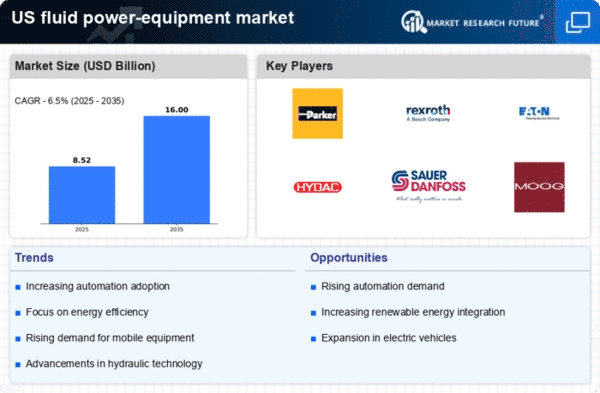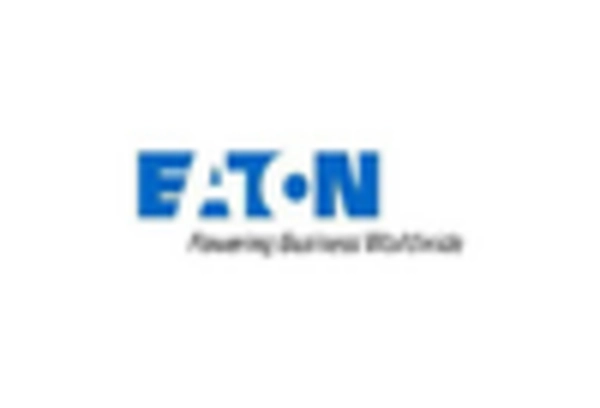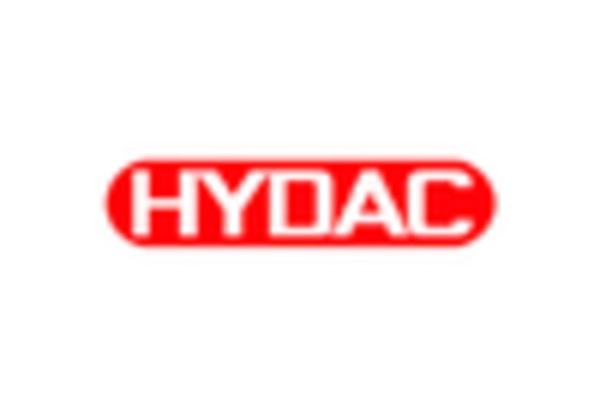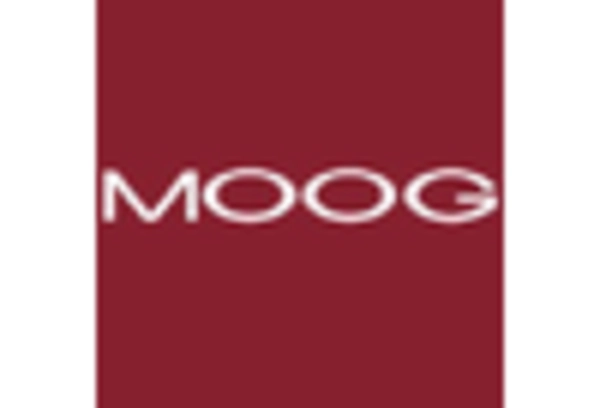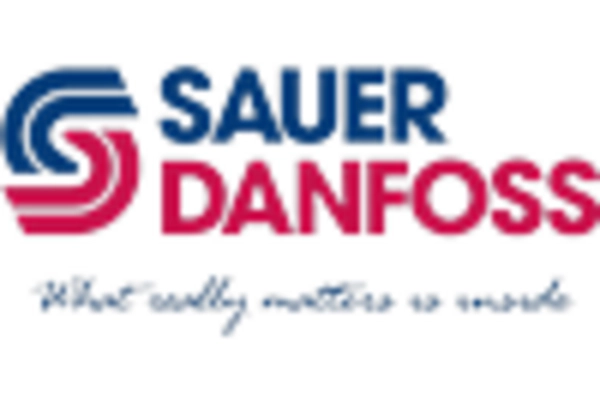Rising Demand for Automation
The fluid power-equipment market experiences a notable surge in demand for automation across various industries. This trend is driven by the need for increased efficiency and productivity in manufacturing processes. Industries such as automotive, aerospace, and construction are increasingly adopting automated systems that rely on fluid power technologies. According to recent data, the automation sector is projected to grow at a CAGR of approximately 10% over the next five years, which directly influences the fluid power-equipment market. As companies seek to enhance operational efficiency, the integration of fluid power systems into automated machinery becomes essential, thereby propelling market growth.
Growth in Renewable Energy Sector
The fluid power-equipment market is positively influenced by the growth of the renewable energy sector. As the US transitions towards sustainable energy sources, there is an increasing demand for fluid power systems in wind, solar, and hydroelectric power generation. These systems are essential for the operation of various equipment, including turbines and hydraulic systems used in energy production. The renewable energy sector is projected to grow at a CAGR of over 8% in the coming years, which will likely drive demand for fluid power technologies. This trend not only supports the fluid power-equipment market but also aligns with broader environmental goals.
Increased Focus on Energy Efficiency
The fluid power-equipment market is witnessing a heightened focus on energy efficiency, driven by both regulatory pressures and corporate sustainability goals. Companies are increasingly adopting fluid power systems that minimize energy consumption and reduce operational costs. Recent studies indicate that energy-efficient fluid power solutions can lead to savings of up to 30% in energy costs. This trend is further supported by government regulations aimed at reducing carbon emissions, which compel industries to invest in more efficient technologies. As a result, the fluid power-equipment market is likely to expand as manufacturers innovate to meet these energy efficiency demands.
Infrastructure Development Initiatives
Infrastructure development initiatives in the US significantly impact the fluid power-equipment market. With government investments in transportation, energy, and public works, there is a growing need for hydraulic and pneumatic systems to support construction and maintenance activities. The US government has allocated over $1 trillion for infrastructure projects, which is expected to create substantial demand for fluid power equipment. This influx of funding not only stimulates the market but also encourages innovation in fluid power technologies, as companies strive to meet the evolving needs of infrastructure projects. Consequently, the fluid power-equipment market is poised for robust growth in response to these initiatives.
Technological Integration in Manufacturing
The integration of advanced technologies such as IoT and AI into manufacturing processes is reshaping the fluid power-equipment market. These technologies enable real-time monitoring and predictive maintenance of fluid power systems, enhancing their reliability and efficiency. As manufacturers increasingly adopt smart technologies, the demand for fluid power equipment that can seamlessly integrate with these systems is expected to rise. The market for smart manufacturing solutions is anticipated to grow significantly, with estimates suggesting a CAGR of around 12% over the next few years. This technological evolution presents both challenges and opportunities for the fluid power-equipment market, as companies must adapt to remain competitive.


